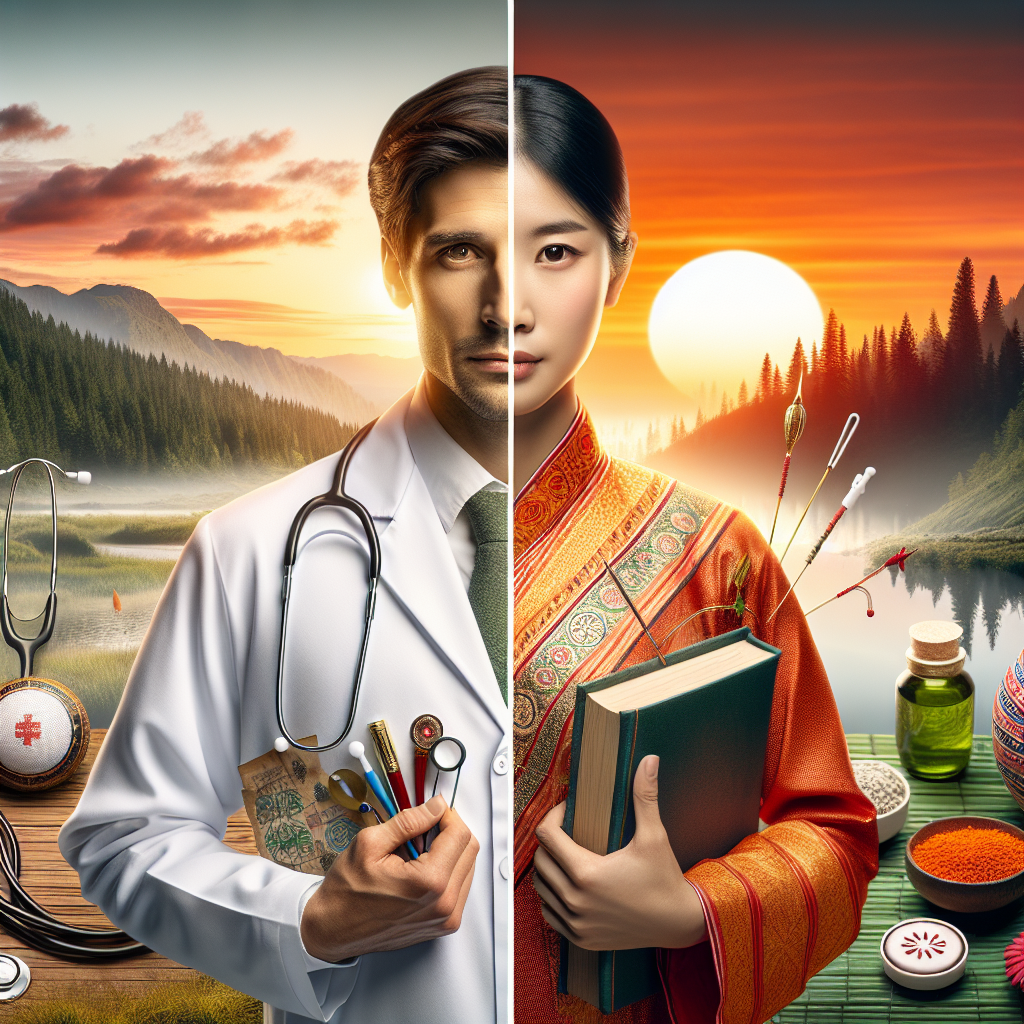Integrative Healing: Combining Western Medical Practices and Eastern Traditions to Combat Depression
Depression is a multifaceted mental health condition that affects millions of people worldwide. It can profoundly impact one’s emotional state, physical health, and overall quality of life. As our understanding of depression deepens, the quest for effective treatments has led to an integrative approach that combines the best of Western medical practices with Eastern healing traditions. This harmonious blend of methodologies offers a more holistic pathway to combating depression, addressing not just the symptoms but the root causes of the condition.
Western Medical Practices for Treating Depression
Western medicine typically approaches depression through a combination of psychotherapy and pharmacotherapy. The goal is to alleviate symptoms and improve the patient’s quality of life through scientifically proven methods.
Psychotherapy, also known as talk therapy, involves discussing one’s feelings, thoughts, and behaviors with a mental health professional. Cognitive Behavioral Therapy (CBT) is a popular form, aiming to change negative thought patterns and behaviors that contribute to depression. Another approach, Interpersonal Therapy (IPT), focuses on improving interpersonal relationships that may be affecting an individual’s mood.
Pharmacotherapy involves the prescription of antidepressants to help correct chemical imbalances in the brain thought to be responsible for depression. Selective Serotonin Reuptake Inhibitors (SSRIs) and Serotonin and Norepinephrine Reuptake Inhibitors (SNRIs) are commonly prescribed antidepressants known for their efficacy and relatively favorable side-effect profiles.
Eastern Healing Traditions for Depression
Eastern traditions offer a different perspective, focusing on the balance and flow of energy within the body and its harmony with the universe. Approaches such as Traditional Chinese Medicine (TCM), Ayurveda, and various forms of meditation and yoga emphasize the interconnectedness of mind, body, and spirit in the healing process.
Traditional Chinese Medicine views depression as an imbalance of Qi (vital energy) within the body. Treatments may involve acupuncture, to restore Qi balance, and herbal remedies designed to address specific imbalances.
Ayurveda, an ancient Indian healing system, identifies depression as a disorder of the mind-body constitution. Treatment is personalized, involving dietary modifications, herbal supplements, yoga, and meditation, all aimed at restoring balance to the individual’s doshas (body energies).
Meditation and Yoga practices from various Eastern traditions are increasingly recognized for their benefits in managing depression. These practices focus on mindfulness, breathing techniques, and physical postures to promote mental clarity, reduce stress, and improve emotional regulation.
Integrating Western and Eastern Approaches
The integrative approach to combating depression recognizes that no single treatment method holds all the answers. Instead, it encourages a combination of Western and Eastern practices to provide a comprehensive treatment plan tailored to the individual’s unique needs.
Case Studies and Research: Emerging research supports the efficacy of an integrative approach. Studies have shown that combining antidepressant medications with practices such as yoga and meditation can result in better outcomes than medication or Eastern practices alone. Patients report fewer depressive symptoms, improved mood, and a higher quality of life.
Personalized Treatment Plans: An integrative strategy involves creating personalized treatment plans that consider the patient’s medical history, preferences, and lifestyle. For instance, a patient might use SSRIs in conjunction with regular acupuncture sessions and mindfulness practices to manage their depression, leveraging the chemical, physical, and mental aspects of healing.
Holistic Care: This approach emphasizes treating the whole person rather than just the symptoms of depression. By addressing mental, physical, and spiritual needs, integrative healing aims to restore balance and promote long-term wellness. It encourages patients to play an active role in their recovery, empowering them with tools and techniques to manage their condition.
Challenges and Considerations
While the integrative approach offers promising results, it also presents challenges. One significant hurdle is the need for more standardized guidelines on how to effectively combine these diverse treatments. Additionally, the availability of qualified practitioners who are adept in both Western and Eastern practices can be limited.
Moreover, cultural and societal perceptions about mental health and treatment methods can influence an individual’s willingness to explore certain therapies. Education and awareness efforts are key to overcoming these barriers, ensuring that individuals feel supported and informed in their treatment choices.
Conclusion
The journey to combat depression is deeply personal and can be complex. Integrative healing, with its combination of Western medical practices and Eastern traditions, offers a promising pathway that respects the multifaceted nature of depression. By embracing the strengths of both approaches, individuals living with depression have more tools at their disposal to find relief and achieve a healthier, more balanced state of being.
As research continues to evolve, it is hoped that integrative approaches will become more accessible and refined, providing hope and healing to those battling depression. Ultimately, the goal is not just to treat depression but to empower individuals to lead fulfilling lives, enriched by a broad spectrum of healing practices.

